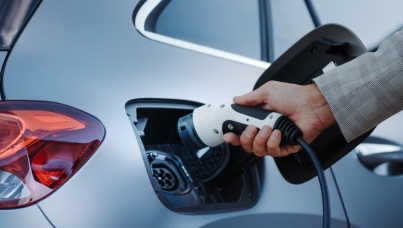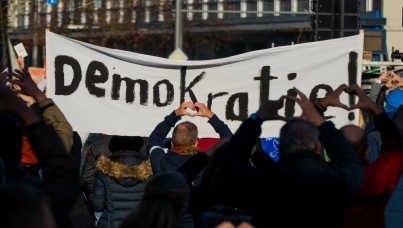Majority of people expect government to make environment a priority in post COVID-19 recovery
Three in four people in 16 major countries expect their government to make protection of the environment a priority when planning a recovery from the coronavirus pandemic, according to a global Ipsos poll conducted to mark World Environment Day.
In a survey of 16,000 people from May 21 to 24, a majority of people in all 16 countries agreed with this action with the highest support in emerging markets of China (91%), India and Mexico (89%), Brazil (85%), and South Africa (84%).
Disagreement over making the environment a government priority in a COVID-19 recovery is highest in Germany (36%), South Korea (29%), Japan and Russia ( 27%), the United States and Canada (23%).
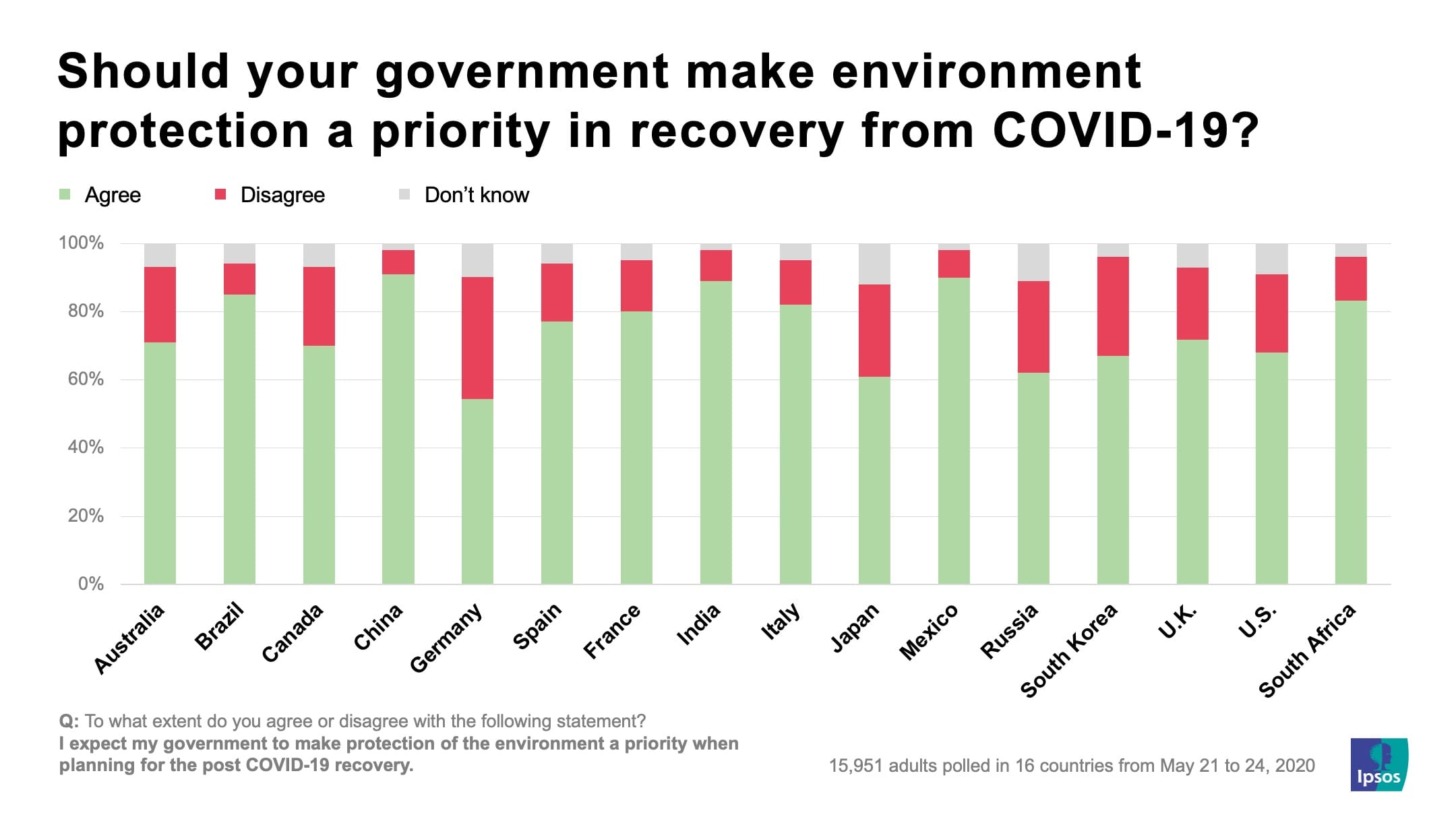
Added to this, there is a view the environment is a personal priority for people with half of the respondents disagreeing that protecting the environment is far down on their list of priorities right now. This sentiment is highest in many European countries including Germany and France (67%), Mexico (65%), Spain and South Africa (60%).
Those that believe protecting the environment is not a top priority right now are most likely in India (67%), Italy (65%) and Russia (58%). People most divided on this issue are in the U.S. with only 1 percentage point separating those that see it as a top priority from those that don’t, followed by Australia and Japan (4).
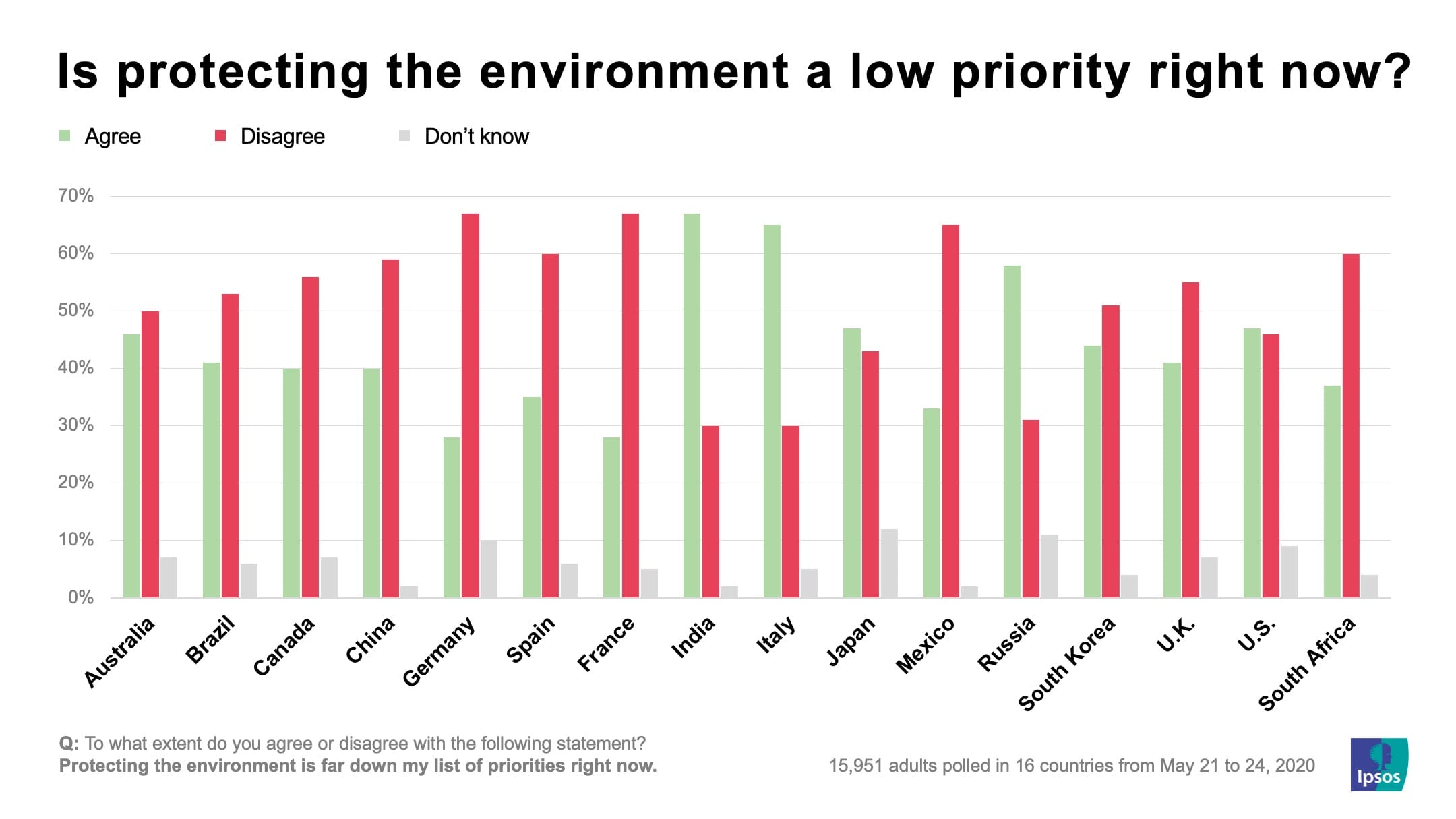
Environmental threat to health
In terms of how seriously people view environmental issues, more than four in five respondents globally say issues such as pollution, degradation of nature, deforestation, overfishing and climate change pose a serious threat to our health and well-being today.
This sentiment is highest again in the developing countries of China (93%), Mexico (91%), South Africa (90%), India and Italy (88%). Meanwhile, the U.S. has the highest number of people that disagree with this threat at 17%, followed by Australia (16%).
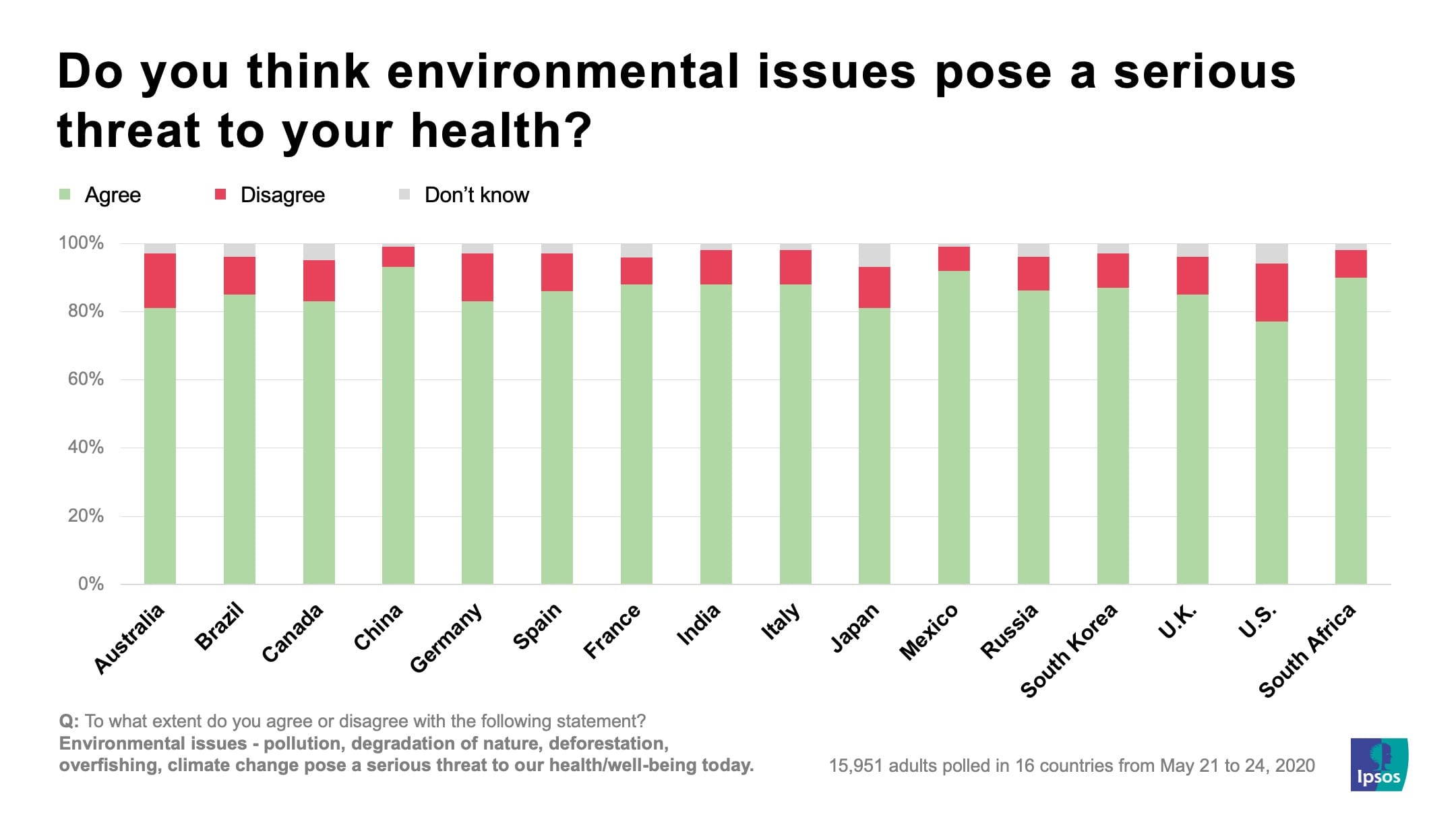
Overall, people feel a strong responsibility to ensure their generation does not destroy the planet for the next generation. Agreement with this sentiment is close to 80% and over in all of the countries with China (92%) and South Africa (91%) at the top.
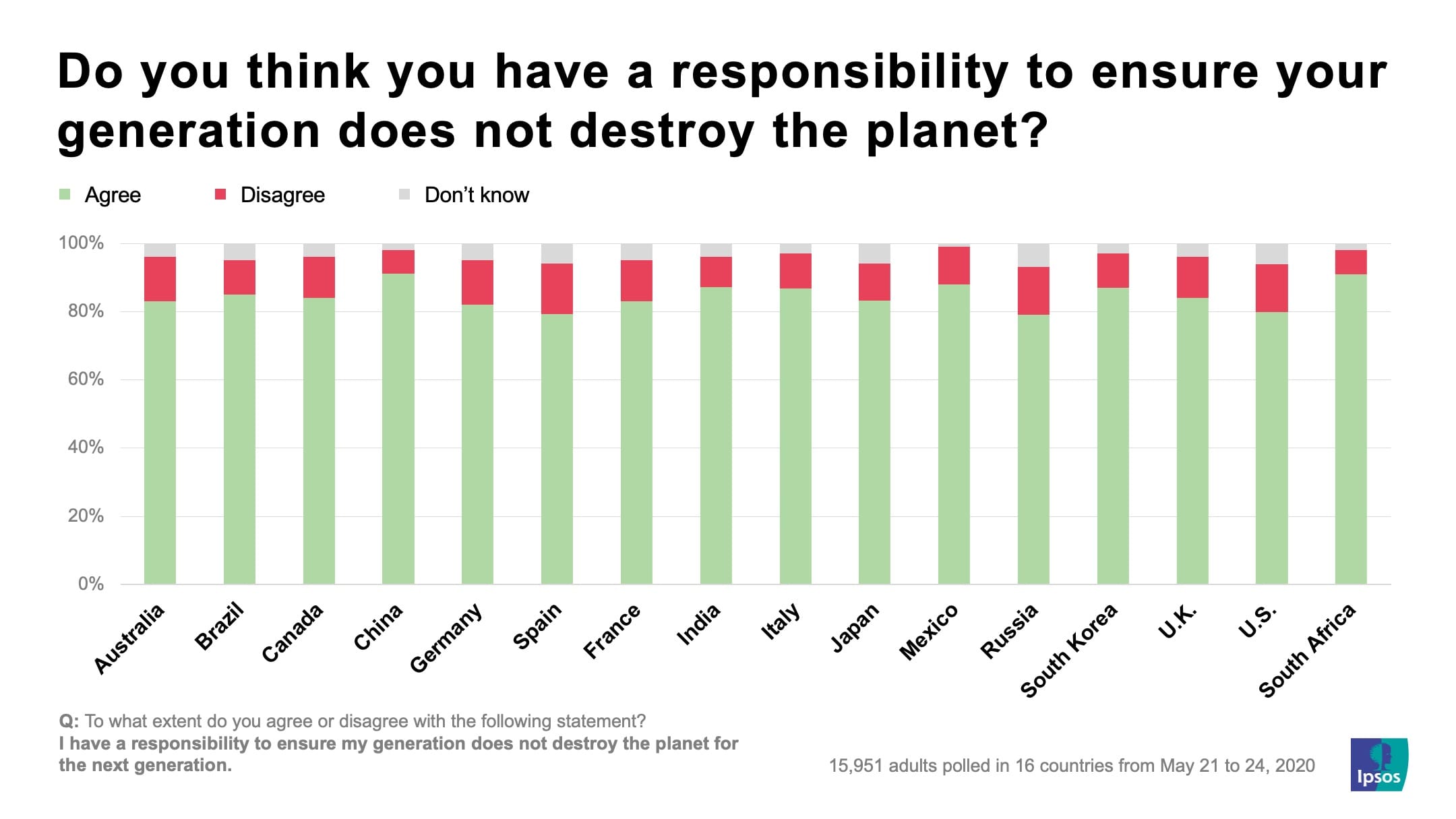
These are the results of an Ipsos survey conducted May 21st to 24th, 2020 on the Global Advisor online platform among 15,951 adults aged 18-74 in Canada and the United States and 16-74 in Australia, Brazil, China, France, Germany, Italy, Spain, India, Japan, Mexico, Russia, South Africa, South Korea and the United Kingdom. Where available, tracking results from previous studies conducted through March and April, as well as selected results from February, are referenced by date.


